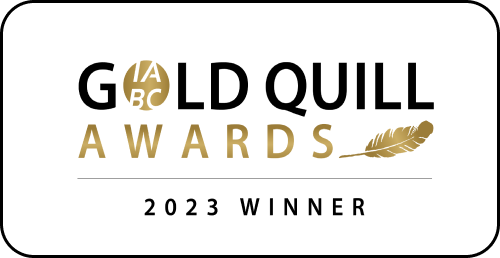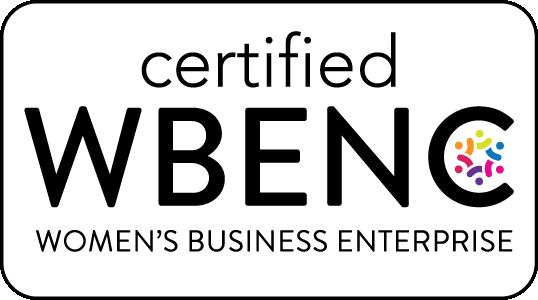Working with an agency is like any relationship: It takes time and work and good communication. When the relationship is successful, life is better. But what are the keys to success? Our panel of experts weighed in.
Julia is a communications leader at a Fortune 100 health care company.
Lenny has worked both on the client and agency side – in senior HR roles for a Fortune 100 company and for an international consulting firm.
Seth is a Total Rewards director at a multinational consumer products company.
When does it make sense to hire an outside agency?
Julia: There are several scenarios: If we need a specific expertise that we don’t have internally, if there’s a new project that we don’t have the bandwidth for, or if there’s a short-term need such as producing a video.
Agencies can really help get you through crunch times. Let’s say we have three agency people on a project, each working part-time for us. When things get busy, they can do a combined 30 hours of work in a day – something a single full-time employee could not do. Maybe the next day, we don’t need their services. So it’s easy to scale up or down according to the workload.
Small or large agency: How do you decide?
Seth: I recently needed to create long-term incentive brochures. This was a big one-off project during a busy period that we needed to do in a short timeframe, and we didn’t have internal expertise for either content or creative work. We engaged a large consulting firm with deep technical knowledge to help with content and a smaller communications agency for design and proofreading.
Julia: The size of a project and scope of work is usually the determining factor. For example, during the pandemic, issues came up that we needed to deal with almost daily. We relied on a large agency that had the infrastructure and capacity to help us respond quickly.
Generally, smaller agencies are more agile. This can make them easier to work with, but they usually occupy a much smaller niche. Bigger agencies are more expensive and can be harder to work with. Their size and scale bring complexities, but also more capabilities.
The important thing is to match the agency with the job. I don’t need to go to a four-star restaurant if my kids want burgers and fries.
Who or what do you rely on when engaging an agency for the first time?
Lenny: Usually word of mouth – from in-house colleagues or peers in the same industry. Sometimes even another agency. I might ask a firm that’s helping us with a benefits design project if they know of a good writer. Another nice thing about working with an outside agency is that you can bring your relationships with you. If I go to work for a different employer, I’ll engage an agency I’ve worked with previously when the experience was positive.
Julia: I agree that word of mouth is important. There are also very practical considerations for a large company such as: Is the agency already in our system? Bringing on a new supplier is a big deal and often time-consuming. There’s lots of vetting that needs to be done by Procurement, and there needs to be a compelling business reason.
If I’m looking for design work, I’ll probably also check the agency’s website to get a sense of their style and sensibility.
When beginning to work with an agency, how do you set yourself up for success?
Seth: Be clear on the timing of your project, have a robust kick-off meeting, schedule weekly check-ins, and pick up the phone when necessary to avoid the back and forth of endless emails.
Lenny: I like to have an introductory conversation with the key players on both the client and agency side. I want to know not only who they are but also their skill sets and expertise. It’s important to lay out expectations for the project and get agreement on these from the beginning. It’s good to have deliverables and timelines documented in the statement of work and the contract so it’s all there in black and white.
From that first meeting, you want to create the right structure, cadence, touch points, and accountability: How often will we meet? Who owns which pieces of the project? How much time will it take the client and the agency to deliver what they need to?
Julia: It’s good to have two or three people who are go-to resources at the agency. You need to know that you can always get ahold of someone when another team member is on vacation or at a doctor’s appointment.
What makes a client/agency partnership successful?
Lenny: Honesty and transparency. Be candid with each other about what you can and cannot deliver, and don’t make promises you can’t keep. When meeting an agency for the first time, I sometimes use one of my favorite interview questions: Describe a time when you had to correct a mistake. It’s important to be able to work well together, not only in good times but also in stressful times when you’re resolving unforeseen issues. I also like to learn about my agency partners – their families, what they do in their leisure time. It’s nice to know the whole person, not just the work part.
Seth: Everyone needs to be aligned around expectations – be clear on what we are delivering and the timeframe for delivering on it. A sense of humor is important in any business relationship. When deadlines are tight and there are unexpected setbacks, things can get tense. It’s nice to share a laugh to ease the pressure-cooker atmosphere.
What tells you if the client/agency relationship is working or not working?
Lenny: Typically, deliverables are taking longer than they should, or the team members are not meeting expectations. Sometimes you feel that the agency isn’t really listening to you.
If it’s not working as well as you’d like, what do you do?
Lenny: When things are not going well, there are probably issues on both sides. Have a conversation as soon as you sense there’s a problem. Be specific about what’s not going well. Discuss where you think things have gone wrong, and give the agency an opportunity to fix the problem. They may be able to add a person to the team or substitute another one who is a better fit. It’s all about communication, honesty, and transparency.
Julia: Figure out what aspects of the relationship are working well and what’s not working, and ask yourself what you could be doing differently. Try to evaluate the root cause of the problem, and resist the urge to sort it out over email. Have a quick conversation to prevent more work and confusion. Avoid microbursts that become full-fledged tornadoes.
Increase the frequency of meetings. You have to put in more time to see if and how the problem can be resolved. But you also have to start thinking about a Plan B. If the quality of the work is sub-par or it isn’t getting done on time, you could have the agency focus on fewer things to reduce the workload and find someone else to pick up the rest.
How have remote work and virtual meetings affected the agency/client relationship?
Seth: I’m all about efficiency, so I like the new normal of virtual meetings. In past years, an agency partner could come to our offices for an hour or two of meetings while spending much more time in transit. The time and cost savings from meeting virtually are significant. And it means we can roll up our sleeves and get to work a lot faster.
Julia: I can’t disagree, but I also think we’ve lost something. The feeling you get sitting in the same room, the body language that you can’t feel through a screen – this is important. Since the pandemic, we’ve learned how to leverage technology, and this is great. But I would advise that the client and agency meet face-to-face at least once a year to retain that human connection.
Lenny, you’ve also worked on the consulting side. Do you have anything to add from this perspective?
When I worked in consulting I tried to be brutally honest with my clients, and as a client I value this quality. Sometimes clients think they know what they want, but the agency takes the initiative to reframe it. I may think I need a slide deck, but maybe an infographic would have more impact. I appreciate it when an agency is strong enough in a relationship to suggest a different approach, and secure enough to have this discussion.


